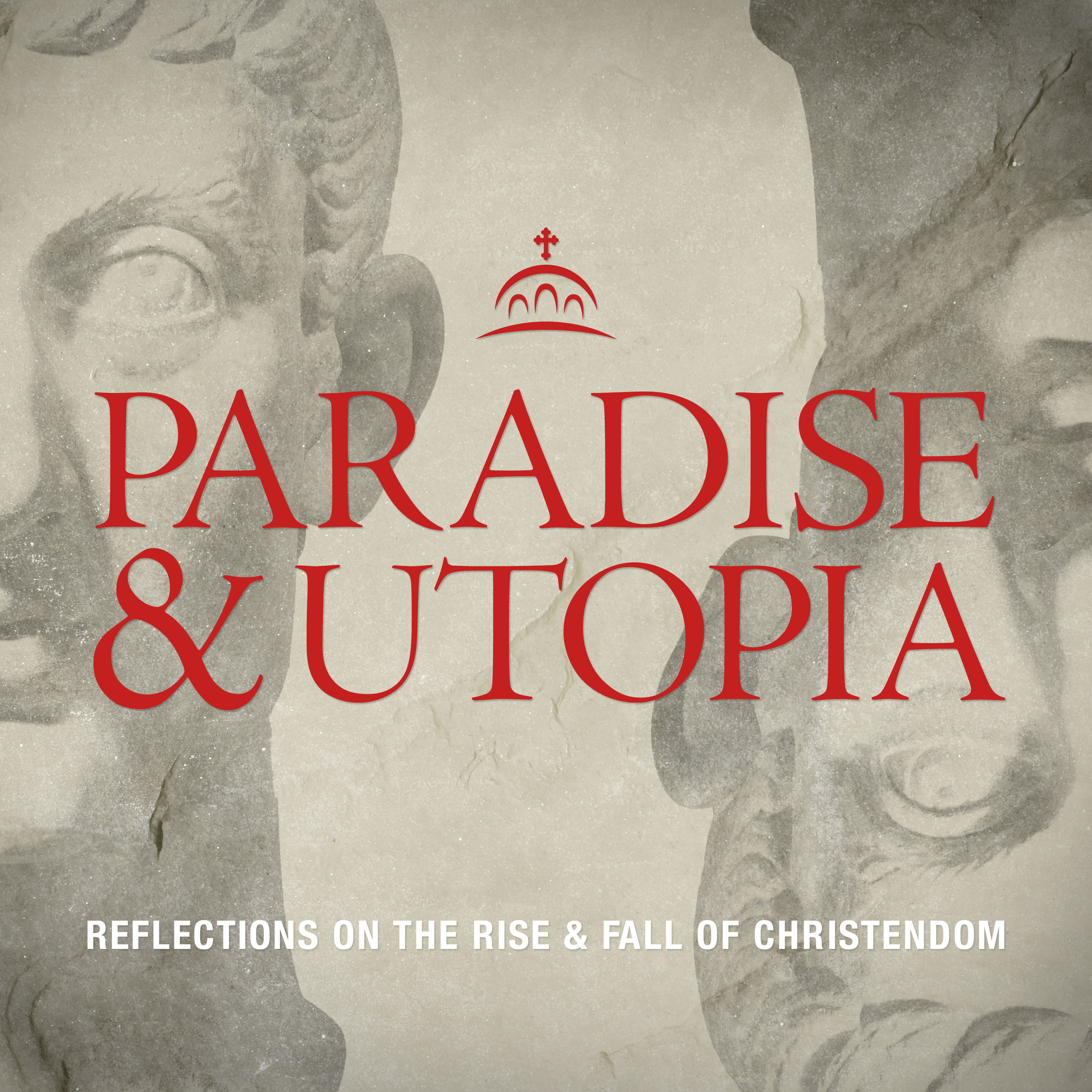

Paradise and Utopia
Fr. John Strickland, and Ancient Faith Ministries
Reflections on the Rise and Fall of Christendom
Episodes
Mentioned books

Nov 14, 2025 • 0sec
Liberal World Building I: When J.S. Mill met Friedrich Nietzsche
In this new sequence of episodes, Fr. John looks at the origins of the main rival to the world-Building ideologies of Communism and Nazis, American liberalism.

Oct 31, 2025 • 0sec
Nazi World-Building III: The War of Annihilation
In this final episode on Nazi Germany, Fr. John discusses the unparalleled nihilism of Hitler's "new order" for the West during World War II, a racist utopia grounded in a secular ideology.

Sep 19, 2025 • 0sec
Nazi World-Building II: The Project of Cultural Coordination
In this episode, Fr. John describes how the Nazis, once in power, pursued a culture war against existing German values and beliefs by attacking Christianity, advancing neopaganism, and elaborating a racist utopia.

Aug 29, 2025 • 0sec
Nazi World-Building I: When Nietzsche met Darwin in Hitler's Mind
In this episode, Fr. John launches into the darkest period of the age of nihilism, Nazi Germany. In it, he explores the conditions of Western culture following the First World War and how they subverted both traditional Christianity and secular humanism. He concludes with a review of the ideological mythology contained in Hitler's Mein Kampf.

Jul 4, 2025 • 0sec
Communist World Building III: The Great Terror
In this final episode dealing with the Soviet Union under Stalin, Fr. John narrates one of the most chilling episodes in the ideological project to apply the transformation-imperative to a nihilistic, post-Christian Christendom.

Jun 27, 2025 • 0sec
Communist World-Building II: Realized Ideological Eschatology
Father John continues his account of the Soviet Union's totalitarian project of building socialism by contrasting its nihilistic ideology with the sacramental experience of traditional Christianity.

May 30, 2025 • 0sec
Communist World-Building I: The Revolution from Above
Explore the chilling intersection of nihilism and totalitarianism in the wake of World War I. Discover how Stalin twisted Marxist and Nietzschean philosophy to craft an authoritarian vision of socialism. Delve into the catastrophic policies of Soviet Communism, including collective farming that led to widespread famine. Reflect on the ideological battles within early communism and the grim legacy of leaders like Stalin and Hitler, culminating in the horrific repression revealed at the 17th Communist Party Congress.

Feb 20, 2025 • 0sec
Dehumanization II: The Great War and Its Cultural Outcome
Father John describes the way the First World World shattered confidence in utopia with Western Christendom, and how the growing specter of nihilism caused a small and diverse group of intellectuals to return to traditional Christianity in the years that followed.

Feb 13, 2025 • 0sec
Dehumanization I: Artistic Modernism and the Dismal Sciences
In this episode, Fr. John reviews the rise of modernism at the beginning of the twentieth century, an artistic movement that largely annihilated centuries of tradition in Western painting, music, and literature. He continues by exploring the rise of dehumanizing and demoralizing views of the human condition advanced by atheistic social scientists of the period such as Emile Durkheim, Max Weber, and Sigmund Freud.

Jan 16, 2025 • 0sec
Dostoevsky IV: Restoring Christendom's Paradisiacal Culture
In this final episode telling of Dostoevsky's encounter with the "specter of nihilism," Fr. John brings attention to the novelist's characters that most revealed the radiant hope of Christ. The first of these was Prince Lev Myshkin in the novel The Idiot. The second was Alyosha in The Brothers Karamazov. The episode concludes with an excerpt from Age of Nihilism about Dostoevsky's vision of the heavenly transformation of the world.


